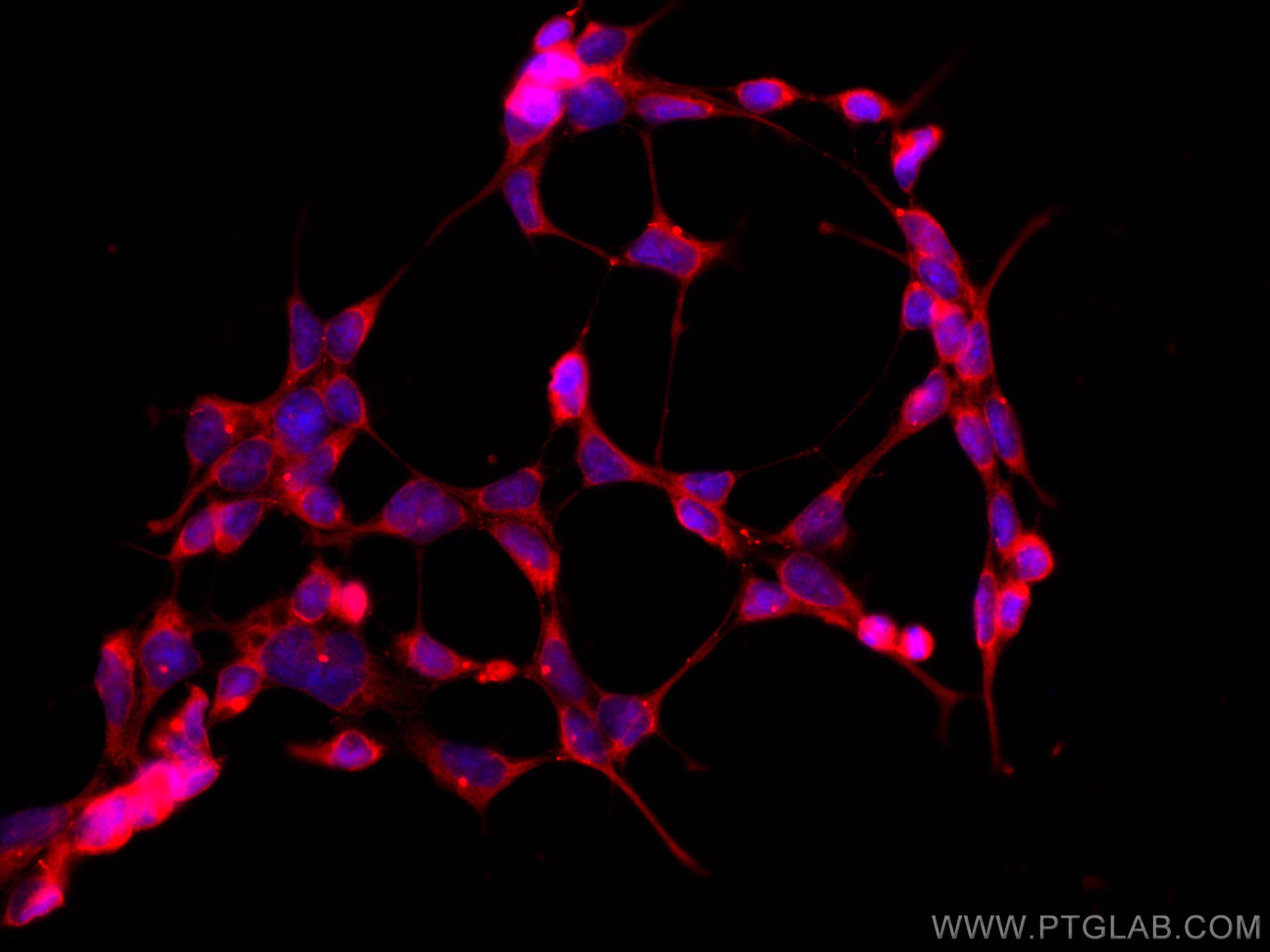验证数据展示
经过测试的应用
| Positive IF/ICC detected in | HEK-293 cells |
Planning an IHC experiment? We recommend our IHCeasy CDR2L Ready-To-Use IHC Kit. CDR2L primary antibody included.
For other applications, we recommend the unconjugated version of this antibody, 66791-1-Ig
推荐稀释比
| 应用 | 推荐稀释比 |
|---|---|
| Immunofluorescence (IF)/ICC | IF/ICC : 1:50-1:500 |
| It is recommended that this reagent should be titrated in each testing system to obtain optimal results. | |
| Sample-dependent, Check data in validation data gallery. | |
产品信息
CL594-66791 targets CDR2L in IF/ICC applications and shows reactivity with Human, Mouse, Rat samples.
| 经测试应用 | IF/ICC Application Description |
| 经测试反应性 | Human, Mouse, Rat |
| 免疫原 | CDR2L fusion protein Ag6139 种属同源性预测 |
| 宿主/亚型 | Mouse / IgG1 |
| 抗体类别 | Monoclonal |
| 产品类型 | Antibody |
| 全称 | cerebellar degeneration-related protein 2-like |
| 别名 | CDR2L, HUMPPA, Paraneoplastic 62 kDa antigen |
| 计算分子量 | 53 kDa |
| 观测分子量 | 54 kDa |
| GenBank蛋白编号 | BC047534 |
| 基因名称 | CDR2L |
| Gene ID (NCBI) | 30850 |
| RRID | AB_2920039 |
| 偶联类型 | CoraLite®594 Fluorescent Dye |
| 最大激发/发射波长 | 588 nm / 604 nm |
| 形式 | Liquid |
| 纯化方式 | Protein G purification |
| UNIPROT ID | Q86X02 |
| 储存缓冲液 | PBS with 50% glycerol, 0.05% Proclin300, 0.5% BSA , pH 7.3 |
| 储存条件 | Store at -20°C. Avoid exposure to light. Stable for one year after shipment. Aliquoting is unnecessary for -20oC storage. |
背景介绍
Cerebellar degeneration-related protein 2-like(CDR2L), also named as HUMPPA or Paraneoplastic 62 kDa antigen, is a 465 amino acid protein, which belongs to the CDR2 family. CDR2L contains three potential coiled-coil regions. The functions of protein is so far not known. CDR2L is expressed in the brain and localizes in the cytoplasm.
实验方案
| Product Specific Protocols | |
|---|---|
| IF protocol for CL594 CDR2L antibody CL594-66791 | Download protocol |
| Standard Protocols | |
|---|---|
| Click here to view our Standard Protocols |
